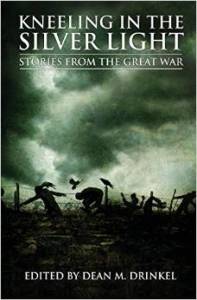So, I made, what I thought, was a fairly easy goal in January. Focus on improving on my weaknesses as a writer. It’s not like there aren’t a dozen different ways I could satisfy this goal: read a craft book, take a class, revise an existing work and give it to a friend for them to say, “Yeah, this is better.” I mean, honestly, this one even seems ripe for rationalizing how an action only tangentially related could be applied so I could say, “Yes. I made my goal.”
But I must be honest.
Books read: 0
Classes taken: Nada.
Friends who have read a revision to make me feel better: Niet.
My only defense in this, my great failure at such an easy task? You know that saying about how life happens when you’re making other plans?
This year has been a bad one helath-wise for me. I’ve suddenly become plagued with half a dozen, seemingly unrelated problems, the big one being that I’ve developed asthma due to allergies, which I’ve been plagued with most my life. Apparently, my allergies have shifted so that I’m now allergic to mold and cats. I own two cats and live in Houston (where it’s humid most the year and the mold count skyrockets every time it rains…and it rains a lot). Add to that a few other issues I won’t bore you with, and the result is that I don’t feel well most the time. And just as I thought one issue was figured out, something else went wrong.
Seriously, I’m too young for my body to be falling apart all of a sudden.
Suffice it to say, it’s hard to focus on writing when it feels like an elephant is sitting on my chest. Taking classes isn’t the easiest thing to do when all the money’s going to doctor’s visits and medicine.
We writers and our health – what’s up with that?
I’ve heard people talk about how we have to be careful with our health, because writing is a pretty sedentary line of work. It’s easy to lose track and end up gaining weight and not getting enough exercise, thus bringing on the host of health problems that come with it. Plus there are the writer-specific issues, like repetitive motion injuries and such.
What I don’t hear often, though is how it can stunt creativity, and in the end, sap the desire to be creative. Let’s face it, pain is exhausting, and creativity needs energy behind it. Psychologically, feeling bad all the time makes it very hard to feel good about much of anything—even something I love like writing.
But, things are looking up, as that medical issues get sorted, and I have kept writing, albeit slowly, sometimes painfully. At this point, anything is better than nothing, and I’m addicted to the written word, so I’m not going to be able to stop writing, even if it’s makes it harder to stay healthy, for whatever reason.
It’s the nice thing about writing—it can happily wait out those curve-balls life throws at us. Sure, I still didn’t meet my goals for the year, but I think I have a pretty good excuse. The thing that makes me feel not so bad though is that it’s not like I’ve set a hard deadline. Pretty much, the only real deadline is when I finally kick the bucket. There’s nothing that says I can’t just start again now, so it’s not a lost cause and I’m not a total failure. Yet.


